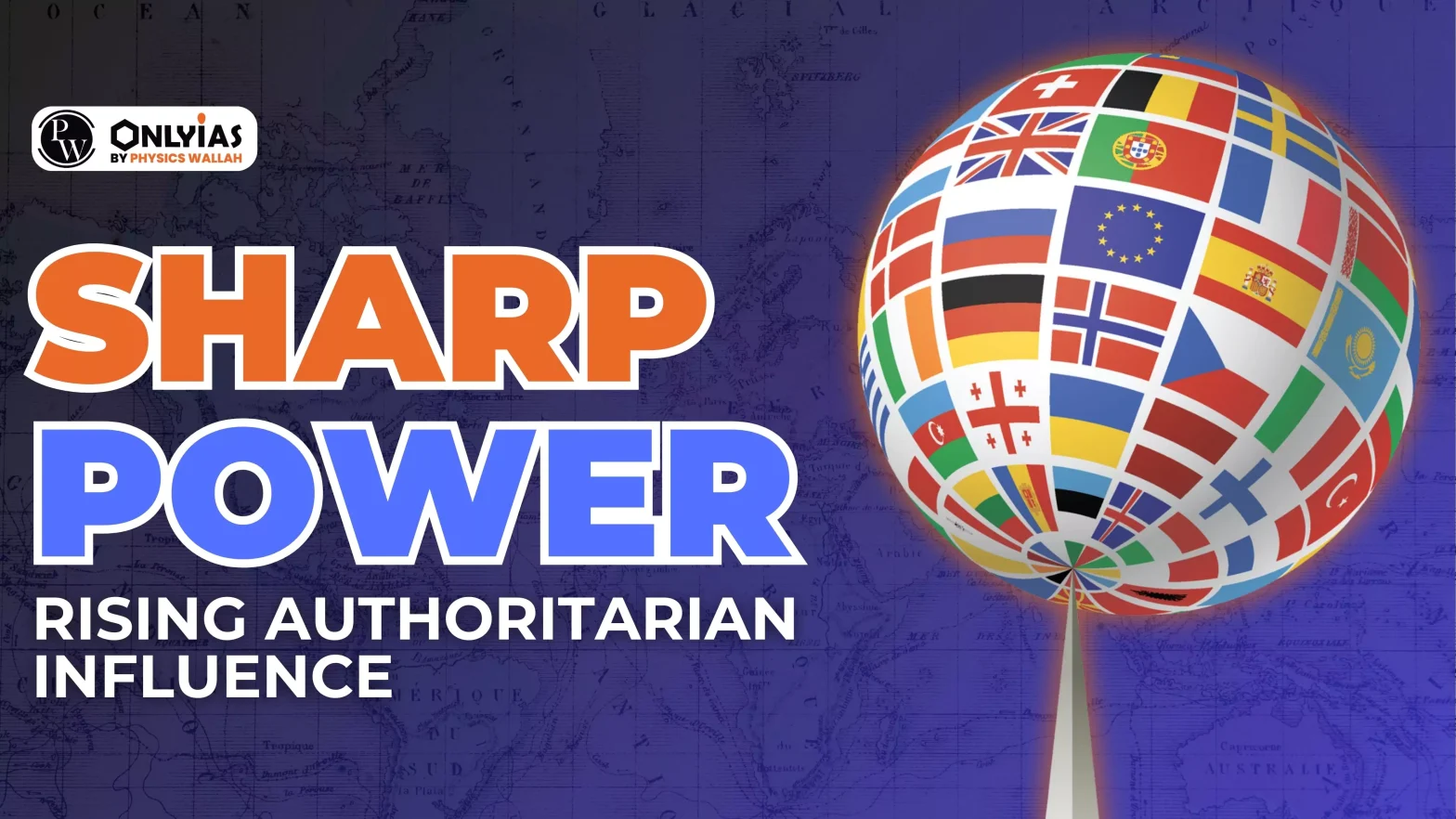“Sharp Power: Rising Authoritarian Influence,” is a report published by the International Forum for Democratic Studies.
| Relevancy for Prelims: Types of Power, China’s “50 Cent Army”, etc.
Relevancy for Mains: Concept of sharp power, comparison of sharp power with soft power and hard power, implications of sharp power for global geopolitics, etc. |
Power
- Evolution of Power Concepts:
- Traditional forms: Hard power and soft power.
- Emerging concept: Sharp power (in the information age).
- Types of Power:
- Hard Power: Based on coercion, threats, or military force. “Stick” approach to diplomacy.
- Soft Power: Influence through persuasion. Tools: Culture, diplomacy, foreign aid.
- Sharp Power: Covert form of influence. Aims to shape information environment. Often associated with authoritarian regimes.
Enroll now for UPSC Online Course
Sharp Power
- Sharp Power: It is the use of manipulative diplomatic policies by one country to influence and undermine the political system of a target country.
- Characteristics of Sharp Power:
- Propaganda and disinformation.
- Media control.
- Cyberattacks.
- Influence operations.
- Impact of Sharp Power:
-
- On Democratic Institutions: Undermines free and fair elections.Weakens public trust. Example: Russian interference in 2016 U.S. elections.
- On Public Discourse: Manipulates social media. Creates echo chambers and polarization. Example: China’s “50 Cent Army”.
- Technological Vulnerabilities: Exploits cybersecurity weaknesses. Utilizes AI and deep fakes. Example: Alleged Saudi use of spyware.
- International Alliances: Formation of new coalitions. Re-evaluation of existing alliances.
- Countering Sharp Power:
-
- Developing robust defense mechanisms.
- Strengthening democratic resilience.
- Promoting media literacy.
- Enhancing international cooperation.
Check Out UPSC Modules From PW Store
Conclusion
Sharp power threatens democratic integrity and public discourse through manipulation and disinformation. Addressing it requires enhanced cybersecurity, democratic resilience, and international collaboration.
![]() 5 Aug 2024
5 Aug 2024
